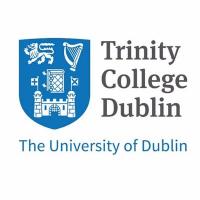Electronic Information Engineering (M.Sc.)
Course Description
Course Information
This is a one year full time postgraduate course designed to provide graduate engineers with specialist understanding of modern computational products and systems. There is no aspect of modern life that is not now altered by information processing engines. Examples include digital assistants (speech recognition and synthesis), automotive (remote sensing and electronic control systems), the economy (quantitative automated trading), entertainment (audiovideo streaming and cinema visual effects), health (medical imaging), science (computational biology/geography/chemistry/photography) and the digital humanities. The principles enabling the design of this new wave of products are embodied in the discipline of Information Engineering. This course allows graduates to specialise in fundamental theory and applications relating to the generation, distribution, analysis and use of information in engineering and science.
Course Organisation
This M.Sc. course is a full-time one year postgraduate course and consists of taught modules and a project amounting to 90 credits. The taught component comprises modules totalling 50 credits. In the first semester, students pursuing the course must take modules worth at least 25 credits, and in the second semester they take the balance of the credits. M.Sc. candidates will, in addition, complete a substantial research project and submit a dissertation which accounts for a further 40 credits to be eligible for consideration for the award of the degree.
Course Content
All candidates are required to take the following module(s):
Research Project/Dissertation (40 credits)
Research Methods (15 credits)
Statistical Signal Processing (5 credits)
Introduction to Deep Learning (10 credits)
In addition, candidates select a further 20 credits from the following list to bring their total credits to 90:
Speech and Audio Engineering (5 credits)
Spatial Audio (5 credits)
Audio Production Engineering (5 credits)
Digital Media Systems (10 credits)
Wireless Networks and Communications (5 credits)
Complex Systems Science (5 credits)
Reconfigurable Hardware for Computational Engineering (10 credits)
Some of the module options in either semester may be withdrawn from time to time and some new modules may be added, subject to demand.
Intakes
- Jan
- Sep
Application Processing Time in Days: 30
Minimum English Language Requirements
| English Level Description | IELTS (1.0 -9.0) | TOEFL IBT (0-120) | TOEFL CBT (0-300) | PTE (10-90) | |
|---|---|---|---|---|---|
| Expert | 9 | 120 | 297-300 | 86-90 | |
| Very Good | 8.5 | 115-119 | 280-293 | 83-86 | |
| Very Good | 8 | 110-114 | 270-280 | 79-83 | |
| Good | 7.5 | 102-109 | 253-267 | 73-79 | |
| Good | 7 | 94-101 | 240-253 | 65-73 | |
| Competent | 6.5 | 79-93 | 213-233 | 58-65 | |
| Competent | 6 | 60-78 | 170-210 | 50-58 | |
| Modest | 5.5 | 46-59 | 133-210 | 43-50 | |
| Modest | 5 | 35-45 | 107-133 | 36-43 | |
| Limited | 4 | 32-34 | 97-103 | 30-36 | |
| Extremely Limited | < 4 | < 31 | < 93 | < 30 |
Job Opportunity Potential
If you are an international student studying at Trinity, you might be considering internship and graduate work in Ireland, in your home country, or elsewhere. This section provides information for Non EU students on working in Ireland during and after your studies. For information and resources to support an international job search, see our Devex resource which includes international job search advice and information.
Employers value candidates who have more to offer than a good degree with high grades. They look for students who are well rounded and who have experience outside the classroom. Search for and take advantage of opportunities to gain experience, develop your skill set, and gain a clearer picture of what you like and don't like in terms of career options.
For example, you can get involved in some of the many student clubs and societies in college, volunteer or get a part time job. Remember that voluntary work is as valuable as paid work on your CV or resume - it's a great way to demonstrate your skills to future employers. Have a look at the TCD Civic Engagement website and check out volunteering opportunities in Ireland and abroad.
PSW Opportunity
- 2 Years
Admission Requirement / Eligibility Criteria
Postgraduate Admission Requirements
Postgraduate work in Trinity is academically challenging and the University has high academic entry requirements.
Applicants will need to:
hold at least a 2.1 honors degree from an Irish university or equivalent result from a university in another country.
display a high level of competence in the English language in one of the examination systems recognised by Trinity College Dublin.
To qualify for admission to a degree course at the University you must meet the requirements outlined above. For more information on what you must include in your application, please see our detailed guide on Making an Application.
Postgraduate English Language Requirements
All applicants whose first language is not English and who have not been educated through the medium of English must present one of the following qualifications in the English language:
IELTS (Academic version) and IELTS Indicator : Grade 6.5 overall.
TOEFL and TOEFL iBT Special Home Edition: 88 internet-based, 570 paper-based, 230 computer-based.
University of Cambridge:
Proficiency Certificate, Grade C or better (CEFR Level C1 or C2)
Advanced Certificate, Grade C or better (CEFR Level C1 or C2)
Pearson Test of English (Academic) - PTE Academic: a minimum score of 63 to be eligible (with no section score below 59)
Duolingo English Test: minimum overall score of 120/160 with no section below 105, dated since January 2020
An award certificate with a minimum II.1 overall score from Trinity's Centre for English Language Learning and Teaching's Pre-Master's Pathway Programme. The Pre-Master’s Pathway Programme is an academic English course for international students with conditional offers for postgraduate study at Trinity. Passing the programme means you meet Trinity’s English language requirement and can progress to your postgraduate course without retaking IELTS or any other exam.
Please also note that existing IELTS, TOEFL, Cambridge and PET scores up to two years old will be accepted for 2023/24 applications in light of test centre closures.
- Course Type: Full Time
- Course Level: Masters/PG Degree
- Duration: 01 Year
-
Total Tuition Fee:
26374 EUR
Average Cost of Living: 10500 EUR /year
Application Fee: 55 EUR
Similar Programs
- MSc in Sustainable Energy at Trinity College Dublin
- Zero Carbon Technology (M.Sc) at Trinity College Dublin
- MSC in Engineering (Environmental / Structural and Geotechnical / Transport/ Sustainable Energy) at Trinity College Dublin
- Music and Media Technologies (M.Phil.) at Trinity College Dublin
- Mechanical Engineering (M.Sc.) at Trinity College Dublin

